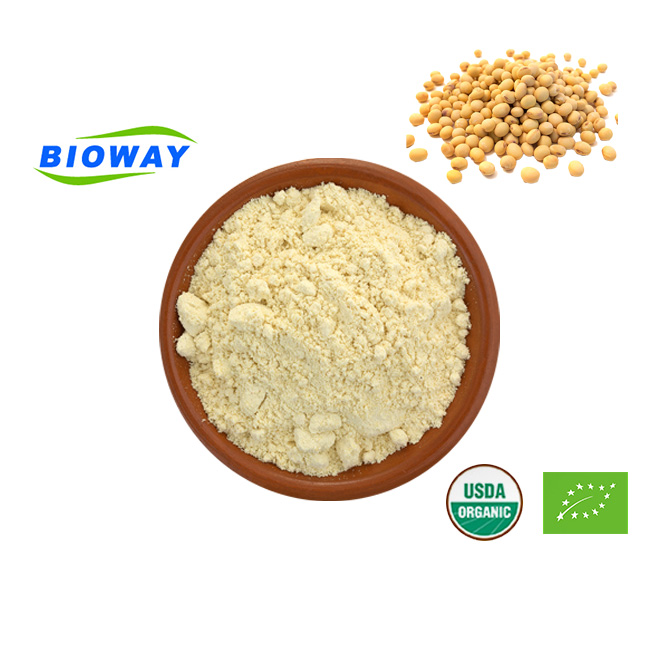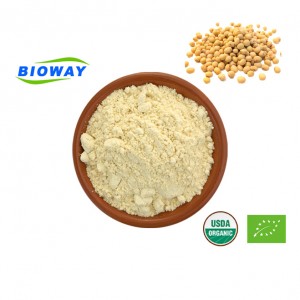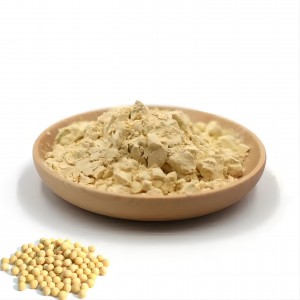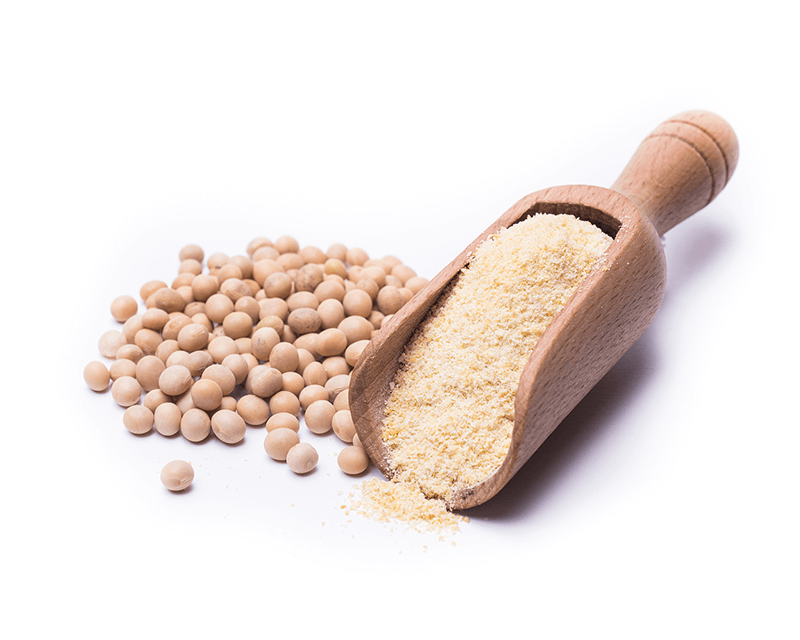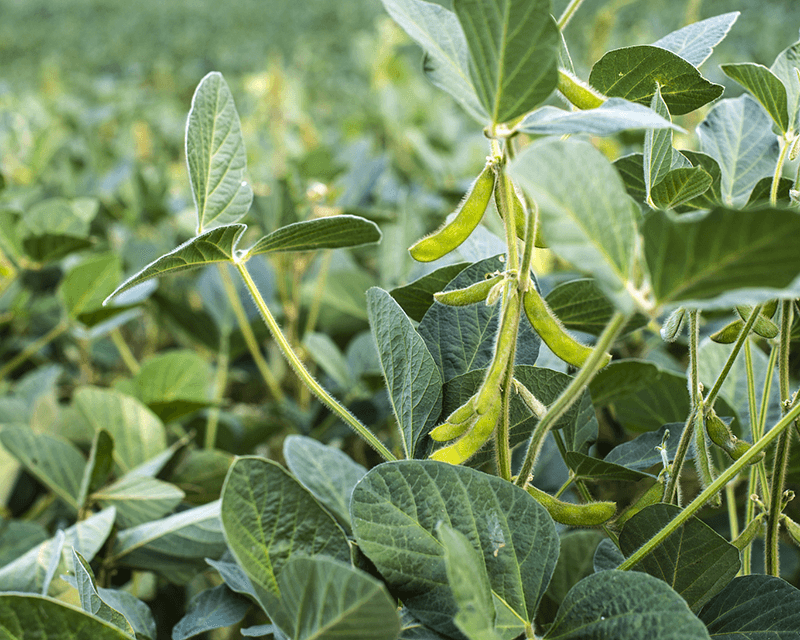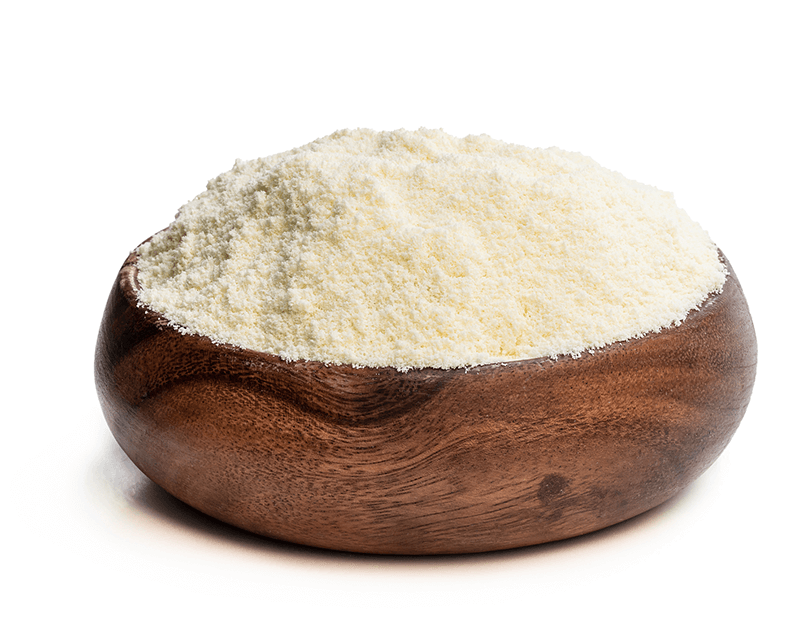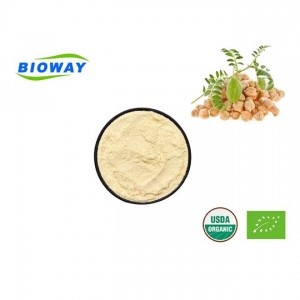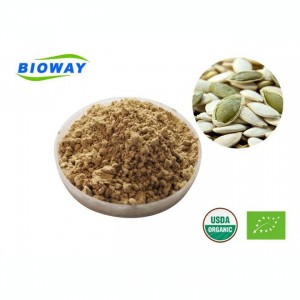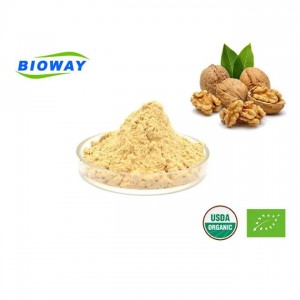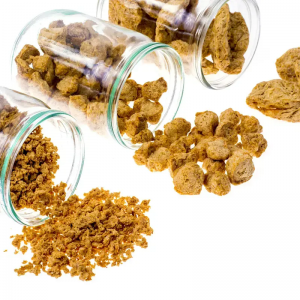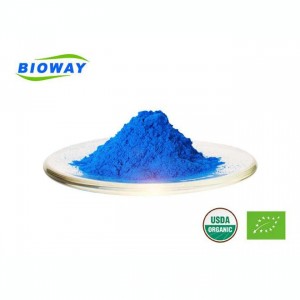Organic Soy Protein Concentrate
Organic soy protein concentrate powder is a highly concentrated protein powder derived from organically grown soybeans. It is produced by removing the majority of the fats and carbohydrates from soybeans, leaving behind a rich protein content.
This protein is a popular dietary supplement for individuals looking to increase their protein intake. It is often used by athletes, bodybuilders, and individuals following vegetarian or vegan diets. This powder is known for its high protein content, containing approximately 70-90% protein by weight.
Since it is organic, this soy protein concentrate is produced without the use of synthetic pesticides, genetically modified organisms (GMOs), or artificial additives. It is derived from soybeans that are grown organically, without the use of synthetic fertilizers or chemical pesticides. This ensures that the final product is free of any harmful residues and is more sustainable for the environment.
This protein concentrate powder can be easily added to smoothies, shakes, and baked goods, or used as a protein boost in various recipes. It provides a complete amino acid profile, including essential amino acids, making it a convenient and versatile protein source for those looking to supplement their diet.
| Sense Analysis | Standard |
| Color | light yellow or off-white |
| Taste 、Odour | Neutral |
| Particle Size | 95% pass 100 mesh |
| Physicochemical Analysis | |
| Protein( Dry basis)/(g/100g) | ≥65.0% |
| Moisture /(g/100g) | ≤10.0 |
| Fat(dry basis)(NX6.25),g/100g | ≤2.0% |
| Ash(dry basis)(NX6.25),g/100g | ≤6.0% |
| Lead* mg/Kg | ≤0.5 |
| Impurities analysis | |
| AflatoxinB1+B2+G1+G2,ppb | ≤4ppb |
| GMO,% | ≤0.01% |
| Microbiological Analysis | |
| Aerobic Plate Count /(CFU/g) | ≤5000 |
| Yeast & Mould,cfu/g | ≤50 |
| Coliform /(CFU/g) | ≤30 |
| Salmonella* /25g | Negative |
| E.coli, cfu/g | Negative |
| Conclusion | Qualified |
Organic soy protein concentrate powder offers several health benefits. These include:
1. High-quality protein: It is a rich source of high-quality plant-based protein. Protein is essential for building and repairing tissues, supporting muscle growth, and maintaining overall health.
2. Muscle growth and recovery: Organic soy protein concentrate powder contains all essential amino acids, including branched-chain amino acids (BCAAs) like leucine, isoleucine, and valine. These play a crucial role in muscle protein synthesis, promoting muscle growth, and aiding in muscle recovery after exercise.
3. Weight management: Protein has a higher satiety effect compared to fats and carbohydrates. Including organic soy protein concentrate powder in your diet can help reduce hunger levels, promote feelings of fullness, and support weight management goals.
4. Heart health: Soy protein has been linked with various heart health benefits. Studies have shown that consuming soy protein may help lower levels of LDL cholesterol (known as "bad" cholesterol) and improve overall cholesterol profiles, reducing the risk of heart disease.
5. Plant-based alternative: For individuals following vegetarian, vegan, or plant-based diets, organic soy protein concentrate powder provides a valuable source of protein. It allows for meeting protein needs without consuming animal-based products.
6. Bone health: Soy protein contains isoflavones, which are plant compounds with potential bone-protective effects. Some studies suggest that consuming soy protein may help improve bone density and reduce the risk of osteoporosis, particularly in postmenopausal women.
However, it is important to note that individuals with soy allergies or hormone-sensitive conditions should consult their healthcare provider before incorporating soy protein products into their diet. Additionally, moderation and balance are key when incorporating any dietary supplement into your routine.
Organic soy protein concentrate powder is a high-quality dietary supplement with several noteworthy product features:
1. High Protein Content: Our organic soy protein concentrate powder is carefully processed to contain a high concentration of protein. It typically contains around 70-85% protein content, making it a valuable ingredient for individuals seeking protein-rich dietary supplements or food products.
2. Organic Certification: Our soy protein concentrate is organically certified, guaranteeing that it is derived from non-GMO soybeans cultivated without the use of synthetic pesticides, herbicides, or fertilizers. It aligns with the principles of organic farming, promoting sustainability and environmental stewardship.
3. Complete Amino Acid Profile: Soy protein is considered a complete protein as it contains all the essential amino acids needed by the human body. Our product retains the natural balance and availability of these amino acids, making it a suitable choice for those looking to meet their nutritional requirements.
4. Versatility: Our organic soy protein concentrate powder is highly versatile and can be used in various applications. It can be incorporated into protein shakes, smoothies, energy bars, baked goods, meat alternatives, and other food and beverage formulations, providing a plant-based protein boost.
5. Allergen-Friendly: Soy protein concentrate is naturally free from common allergens such as gluten, dairy, and nuts. It is an excellent option for those with specific dietary restrictions or allergies, offering a plant-based protein alternative that is easily digestible.
6. Smooth Texture and Neutral Flavor: Our soy protein concentrate powder is carefully processed to have a smooth texture, allowing for easy mixing and blending in different recipes. It also has a neutral flavor, meaning it won't overpower or alter the taste of your food or beverage creations.
7. Nutritional Benefits: In addition to being a rich source of protein, our organic soy protein concentrate powder is also low in fat and carbohydrates. It can aid in muscle recovery, support satiety, and contribute to overall health and wellness.
8. Sustainable Sourcing: We prioritize sustainability and ethical sourcing in the production of our organic soy protein concentrate powder. It is derived from soybeans cultivated using sustainable agricultural practices, ensuring minimal impact on the environment.
Overall, our organic soy protein concentrate powder offers a convenient and sustainable way to incorporate plant-based protein into various dietary and nutritional products, while ensuring the highest quality and purity standards.
Here are some of the potential product application fields for organic soy protein concentrate powder:
1. Food and Beverage Industry: Organic soy protein concentrate powder can be used as an ingredient in various food and beverage products. It can be added to protein bars, protein shakes, smoothies, and plant-based milks to enhance the protein content and provide a complete amino acid profile. It can also be used in bakery products like bread, cookies, and cakes to increase the protein content and improve their nutritional value.
2. Sports Nutrition: This product is commonly used in sports nutrition products such as protein powders and supplements. It is highly beneficial for athletes, fitness enthusiasts, and individuals looking to support muscle growth, recovery, and overall well-being.
3. Vegan and Vegetarian Diets: Organic soy protein concentrate powder is an excellent source of plant-based protein for individuals following vegan or vegetarian diets. It can be used to meet their protein requirements and ensure they are getting a complete range of amino acids.
4. Nutritional Supplements: This product can be used as a key ingredient in nutritional supplements like meal replacements, weight management products, and dietary supplements. Its high protein content and nutritional profile make it a valuable addition to these products.
5. Animal Feed Industry: Organic soy protein concentrate powder can also be used in animal feed formulations. It is a source of high-quality protein for livestock, poultry, and aquaculture.
The versatile nature of organic soy protein concentrate powder allows it to be used in a wide range of applications across different industries, catering to different dietary needs and preferences.
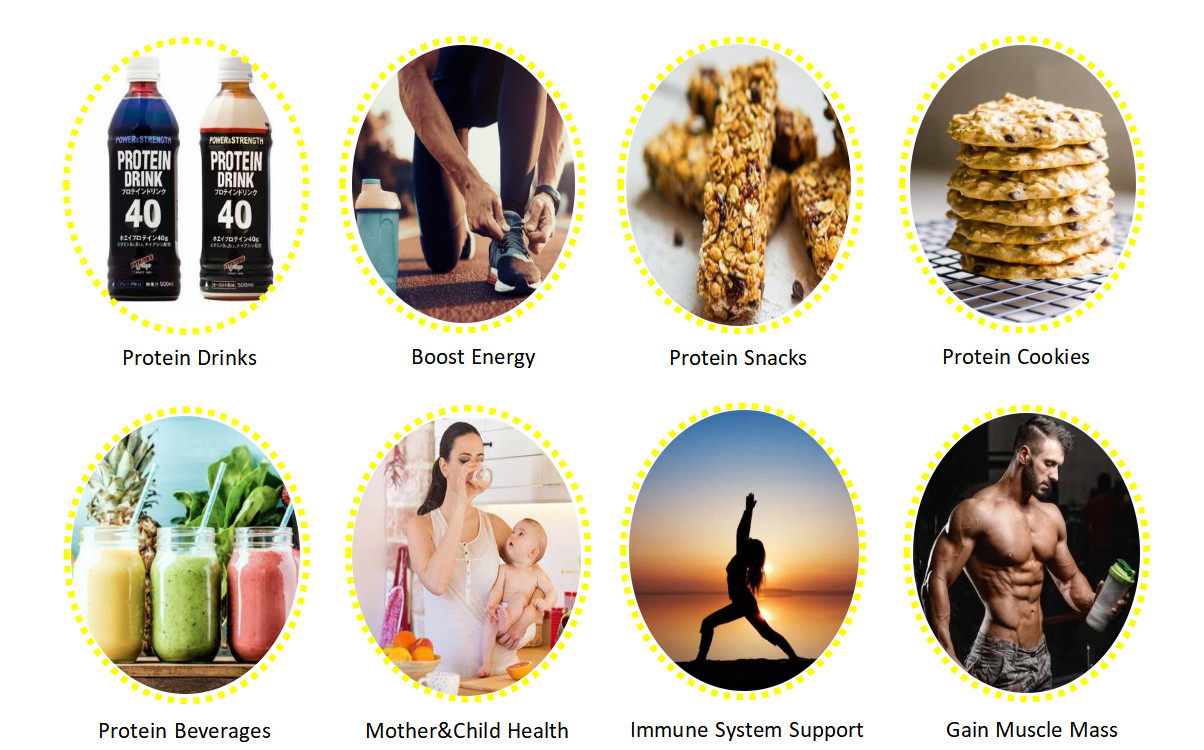
The production process of organic soy protein concentrate powder involves several steps. Here is a general overview of the process:
1. Sourcing Organic Soybeans: The first step is to source organic soybeans from certified organic farms. These soybeans are free from genetically modified organisms (GMOs) and are grown without the use of synthetic pesticides and fertilizers.
2. Cleaning and Dehulling: The soybeans are thoroughly cleaned to remove impurities and foreign particles. The outer hulls are then removed through a process called dehulling, which helps in improving the protein content and digestibility.
3. Grinding and Extraction: The dehulled soybeans are ground into a fine powder. This powder is then mixed with water to form a slurry. The slurry undergoes extraction, where water-soluble components such as carbohydrates and minerals are separated from insoluble components like protein, fat, and fiber.
4. Separation and Filtration: The extracted slurry is subjected to centrifugation or filtration processes to separate the insoluble components from the soluble ones. This step primarily involves separating the protein-rich fraction from the remaining components.
5. Heat Treatment: The separated protein-rich fraction is heated at a controlled temperature to inactivate enzymes and remove any remaining anti-nutritional factors. This step helps improve the flavor, digestibility, and shelf life of the soy protein concentrate powder.
6. Spray Drying: The concentrated liquid protein is then converted into a dry powder through a process called spray drying. In this process, the liquid is atomized and passed through hot air, which evaporates the moisture, leaving behind the powdered form of soy protein concentrate.
7. Packaging and Quality Control: The final step involves packaging the organic soy protein concentrate powder in suitable containers, ensuring proper labeling and adherence to quality control standards. This includes testing for protein content, moisture levels, and other quality parameters to ensure a consistent and high-quality product.
It's important to note that the specific production process may vary depending on the manufacturer, equipment used, and desired product specifications. However, the steps mentioned above provide a general outline of the production process for organic soy protein concentrate powder.
Storage: Keep in a cool, dry, and clean place, Protect from moisture and direct light.
Bulk Package: 25kg/drum.
Lead Time: 7 days after your order.
Shelf Life: 2 years.
Remark: Customized specifications also can be achieved.
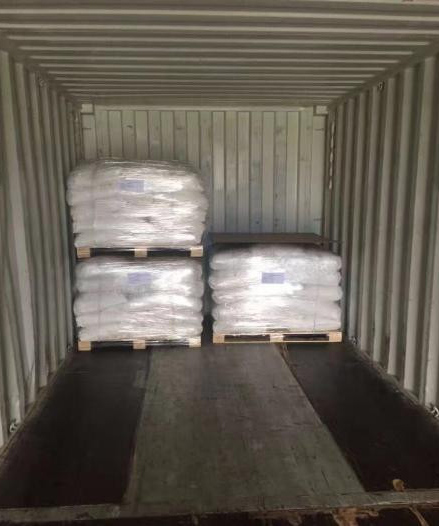
20kg/bag 500kg/pallet

Reinforced packaging

Logistics security
Express
Under 100kg, 3-5Days
Door to door service easy to pick up the goods
By Sea
Over300kg, Around 30 Days
Port to port service professional clearance broker needed
By Air
100kg-1000kg, 5-7Days
Airport to airport service professional clearance broker needed

Organic soy protein concentrate powder is certified with the NOP and EU organic, ISO certificate, HALAL certificate, and KOSHER certificates.

The production processes for isolated, concentrated, and hydrolyzed plant-based proteins have some key differences. Here are the distinguishing features of each process:
Isolated Plant-Based Protein Production Process:
The main goal of producing isolated plant-based protein is to extract and concentrate the protein content while minimizing other components like carbohydrates, fats, and fiber.
The process typically starts with sourcing and cleaning the raw plant material, such as soybeans, peas, or rice.
After that, the protein is extracted from the raw material using methods like aqueous extraction or solvent extraction. The extracted protein solution is then filtered to remove solid particles.
The filtration process is followed by ultrafiltration or precipitation techniques to further concentrate the protein and remove unwanted compounds.
To obtain a highly purified protein processes like pH adjustment, centrifugation, or dialysis can also be used.
The final step involves drying the concentrated protein solution using methods like spray drying or freeze drying, resulting in isolated plant-based protein powder with protein content usually exceeding 90%.
Concentrated Plant-Based Protein Production Process:
The production of concentrated plant-based protein aims to increase the protein content while still preserving other components of the plant material, such as carbohydrates and fats.
The process starts with sourcing and cleaning the raw material, similar to the isolated protein production process.
After extraction, the protein-rich fraction is concentrated through techniques like ultrafiltration or evaporation, where the protein is separated from the liquid phase.
The resulting concentrated protein solution is then dried, usually through spray drying or freeze drying, to obtain a concentrated plant-based protein powder. The protein content is typically around 70-85%, lower than isolated protein.
Hydrolyzed Plant-Based Protein Production Process:
The production of hydrolyzed plant-based protein involves breaking down the protein molecules into smaller peptides or amino acids, enhancing digestibility and bioavailability.
Similar to the other processes, it begins with sourcing and cleaning the raw plant material.
The protein is extracted from the raw material using methods like aqueous extraction or solvent extraction.
The protein-rich solution is then subjected to enzymatic hydrolysis, where enzymes like proteases are added to break down the protein into smaller peptides and amino acids.
The resulting hydrolyzed protein solution is often purified through filtration or other methods to remove impurities.
The final step involves drying the hydrolyzed protein solution, typically through spray drying or freeze drying, to obtain a fine powder form suitable for use.
In summary, the main distinctions among isolated, concentrated, and hydrolyzed plant-based protein production processes lie in the level of protein concentration, preservation of other components, and whether or not enzymatic hydrolysis is involved.
Organic pea protein is another plant-based protein powder derived from yellow peas. Similar to organic soy protein, it is produced using peas that are cultivated using organic farming methods, without the use of synthetic fertilizers, pesticides, genetic engineering, or other chemical interventions.
Organic pea protein is a suitable option for individuals who follow a vegan or vegetarian diet, as well as those who have soy allergies or sensitivities. It is a hypoallergenic protein source, making it easier to digest and less likely to cause allergic reactions compared to soy.
Pea protein is also known for its high protein content, usually ranging between 70-90%. While it is not a complete protein on its own, meaning it doesn't contain all the essential amino acids, it can be combined with other protein sources to ensure a complete amino acid profile.
In terms of taste, some people find organic pea protein to have a milder and less distinct flavor compared to soy protein. This makes it more versatile for adding to smoothies, protein shakes, baked goods, and other recipes without significantly altering the taste.
Both organic pea protein and organic soy protein have their own unique advantages and can be good options for individuals seeking plant-based protein sources. The choice ultimately depends on personal dietary preferences, allergies or sensitivities, nutritional goals, and taste preferences. It's always a good idea to read labels, compare nutritional profiles, consider individual needs, and consult with a healthcare professional or nutritionist if necessary, to determine the best protein source for you.





